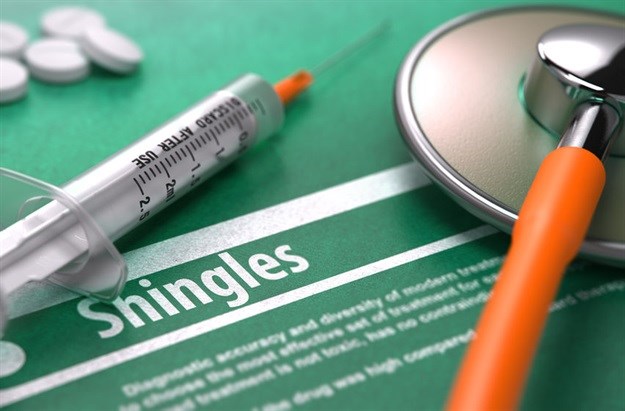Approximately 95% of adults are at risk of developing the 'big brother' of chickenpox, which is shingles or its painful companion, post-herpetic neuralgia (PHN).
Shingles, or herpes zoster, is caused by the 'chickenpox virus', varicella zoster. If you had chickenpox as a child, even very mildly, you carry the virus in your body today, because the varicella zoster virus never leaves the body. Once the initial outbreak has subsided, the virus retreats into the dorsal root ganglia - the sensory nerve that supplies the skin - where it can remain dormant for years; until it is reactivated as 'big brother', herpes zoster.
There is no way of knowing who will develop shingles and doctors do not know what triggers the virus to reactivate, but what they do know is that the incidence of shingles increases as we age. Between 10 to 20% of adults will get shingles during their lifetime and this figure increases dramatically to 50% for those over the age of 85. The virus is also more common among people who are immunocompromised, such as those who have HIV / AIDS, or have undergone chemotherapy or had an organ transplant.
Symptoms
Shingles typically starts with abnormal localised skin sensations, ranging from tingling and numbness, to itching, burning and severe pain. Headaches, fever, chills, stomach upsets and a general feeling of malaise can accompany it. Within 48 to 72 hours, a chickenpox-like rash develops, starting with red patches that then form clusters of small blisters, which begin to dry and scab three to five days after they first appear.
The defining characteristic is that it is limited to either the right or left side of the body, and does not cross the midline. The pain associated with shingles varies considerably from patient to patient, but in some even the slightest touch or breeze causes excruciating spasms.
Generally, shingles is short-lived and the disease runs its course over ten days, although the skin may take longer to recover.
Post-herpetic neuralgia
For the unlucky few, however, the virus can persist, causing chronic and on-going pain that persists long after the lesions have healed. This is called post-herpetic neuralgia or PHN, which is characterised by "unrelenting sharp, burning, stabbing pain, capable of making even the most menial activities of everyday life, such as bathing and dressing, unbearable."
PHN is of particular concern with increasing age because it is estimated that half of those individuals who develop shingles over the age of 50, will also develop PHN. Both the incidence and the duration of PHN are directly correlated to the patient's age. As compared with younger patients, those over the age of 50 experience a prevalence of pain that is 15 to 27 times as high, at 30 and 60 days, respectively. The pain appears to be because of damage to the sensory nerves, resulting in neuropathic pain, which is intermittent and often does not correlate with any external stimuli.
Because of this, many patients think that they are imagining their pain, causing confusion and self-doubt. But the pain is real, and often so chronic that it causes sleep disturbance, affects basic functioning as well as recreational activities, and often results in clinical depression. It is not uncommon for PHN to result in a loss of autonomy and independence in elderly patients. Consequent withdrawal, isolation and sometimes institutionalization may also occur. The pain can persist for months, and occasionally years. In one study of patients aged over 65 years, the mean duration of the pain was found to be 3.3 years, but can extend to over 10 years.
There is no cure
Unfortunately, there is no cure for either shingles or PHN, although some medications are able to help contain symptoms and prevent complications.
Dr Milton Raff is the director of the Christian Barnard Memorial Hospital Pain Clinic in Cape Town and specialises in treating chronic pain. "The problem with shingles-related pain is that it is so difficult to treat. Because it is pain resulting from affected nerves that function abnormally, regular pain medications are not effective. We only have a few specialised medications we can try. If these prove to be ineffective, then the pain can be incapacitating. In a small proportion of patients, the pain never goes away. Not only does the patient suffer severe pain, they can often not perform routine everyday tasks."
Vaccination can prevent it
The good news is that both shingles and PHN can be prevented, just like chickenpox, by means of a simple vaccination.
The herpes zoster vaccine, which has been available since 2014, has been proven to reduce the chances of developing shingles - and by association PHN - by up to 70 % - specifically in the age group most at risk ie. those over the age of 50. In addition, it significantly reduces the severity of the pain, by 73 %, among vaccinated individuals who do develop shingles, as compared to placebo.
You vaccinate your children against chickenpox. You should vaccinate yourself and your elder loved ones against shingles.















































